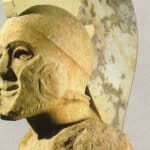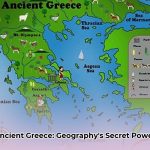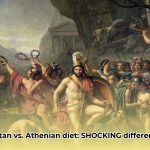Step away from the romanticized images of goddesses and submissive wives. The lives of women in ancient Greece were complex, varied, and far more compelling than conventional narratives suggest. This exploration transcends simplistic stereotypes, delving into the multifaceted realities of women’s experiences across different city-states, from the restrictive societal norms of Athens to the distinctive freedoms enjoyed in Sparta. We will examine legal frameworks, social conventions, and the subtle yet significant ways women asserted power and influence. For further reading on women in ancient history, check out this helpful resource: Women in Ancient History. Prepare to encounter untold stories, nuanced contrasts, and resources for continuing your exploration of this captivating era.
Ancient Greek Women: Beyond Myths and Misconceptions
Join us as we journey into the world of ancient Greek women, a society both strikingly different from our own and surprisingly resonant in its complexities. While historical accounts often center on male figures, the narratives of women are equally vital, though often veiled within the remnants of time. Their lives were anything but monolithic, shaped by geographical location and societal status. Let’s unravel the layers of history to illuminate the social positions of ancient women and their remarkable capacity for adaptation and resilience.
Athenian Women: Confined Within Restrictions?
Imagine life as an Athenian woman. Your path was largely predetermined: marriage, typically arranged at a young age, defined your future. Transitioning from daughter to wife to mother, your identity was intricately bound to the men in your life—father, husband, and sons. While direct access to their inner thoughts is limited, consider the aspirations potentially subdued by societal expectations. Legally, you were considered a perpetual minor, lacking the autonomy recognized today. Any property you might possess was likely managed by male relatives.
Yet, even within these limitations, resilience and ingenuity emerge. Though personal diaries and letters are rare, archaeological evidence and interpretations of literature reveal the strength and resourcefulness of many Athenian women. Envision them finding fulfillment in family life, cultivating close relationships with women, and establishing support networks. Details may be scarce, but the potential for a meaningful existence within these constraints is undeniable. Could familial bonds and community relationships have provided Athenian women with fulfillment, strength, and solidarity?
Spartan Women: Embracing Autonomy and Fortitude
Now, shift to Sparta and meet the Spartan woman, a stark contrast to her Athenian counterpart. Sparta’s unique warrior culture fostered greater female autonomy, though not necessarily complete equality. Spartan women often possessed greater control over their lives than their Athenian counterparts. They could own property—a rare privilege in other Greek city-states—and were encouraged to engage in physical training, contributing to their overall strength. Scholars suggest this role was crucial to sustaining the Spartan military prowess. Did the emphasis on health and fitness among Spartan women translate to greater societal influence?
However, even in Sparta, life was not without constraints. While enjoying greater freedom, their lives were largely shaped by the needs of the Spartan state and its military ethos. The reasons for these differences between Athenian and Spartan women continue to spark historical debate. Was it solely Sparta’s unique political and social structure, or did deeper cultural and economic factors play a role? Ongoing research seeks to illuminate this fascinating comparison.
Beyond the Elite: Diverse Experiences of Ancient Greek Womanhood
It’s vital to acknowledge that the lives of “citizen” women (Athenian and Spartan) represent only a segment of the diverse experiences of women in ancient Greece. The sheer range of women’s lives during this period—and the limited surviving records—caution against broad generalizations. We must confront the harsh reality of slavery, acknowledging the horrific conditions endured by countless women forced into servitude. Furthermore, the hetairai, high-class courtesans, enjoyed relative independence and social mobility, sharply contrasting with the pornai, lower-class prostitutes, whose lives were marked by exploitation. Recognizing these diverse experiences is crucial for a complete understanding of ancient Greek womanhood.
Literacy, Intellectual Pursuits, and Artistic Endeavors
Were ancient Greek women largely illiterate and intellectually stagnant? Evidence suggests a more nuanced reality. Formal education for girls was limited, emphasizing domestic skills, yet notable exceptions challenge this assumption. Evidence suggests that some women, though likely few in number, achieved literary and philosophical accomplishments, often unattributed or unrecognized. The scarcity of their writings, and biases in surviving accounts, makes this an ongoing area of inquiry. Social class, cultural background, and access to education likely influenced a woman’s opportunities for intellectual and creative engagement.
Religion: Female Influence and Spiritual Authority
The religious sphere provides another avenue for exploring female influence. Women served as priestesses, holding positions of authority and wielding religious power within their communities. Their roles and influence varied based on the deity, location, and religious practices. Did priestesses hold more sway than other women? How did their influence manifest in different contexts? Researchers continue to explore these questions.
Future Research Directions and Archaeological Discoveries
The historical record regarding ancient Greek women is inevitably incomplete, fragmented, and often biased, predominantly constructed by men, reflecting their perspectives. Scholars face the task of piecing together these fragments, acknowledging limitations in surviving evidence. New research avenues offer hope for more inclusive narratives. Archaeological discoveries continue to enhance our understanding, shedding light on daily life and challenging assumptions. Multidisciplinary approaches, combining history, archaeology, and anthropology, provide a lens for examining these lives more comprehensively. Interdisciplinary collaborations can mitigate biases and provide detailed accounts. Understanding ancient Greek women is an ongoing process, with many questions remaining. What roles might women take in these fields?
Summary Table: Contrasting Athenian and Spartan Women
| Feature | Athenian Women | Spartan Women |
|---|---|---|
| Legal Status | Limited rights, legal minors | Greater autonomy, property rights |
| Education | Domestic skills emphasized | Physical training encouraged |
| Social Role | Primarily domestic | More public and political involvement |
| Property Rights | Generally none | Ownership allowed |
| Marriage Practices | Primarily arranged | More agency potentially existed |
Ancient Greek women’s lives defy simple categorization. It is a narrative of limitations, resilience, diversity, and untold stories waiting to be uncovered. As research advances, we can anticipate a more nuanced understanding of their experiences, contributions, and lives within the fabric of ancient Greek history.
How Did Social Status Vary Across City-States?
Key Takeaways:
- Women’s lives in ancient Greece were far from uniform, varying significantly across city-states.
- While largely confined to domestic roles, women wielded influence within families and sometimes played surprisingly prominent public roles.
- The stark contrast between Athenian and Spartan women’s lives highlights the diversity of their experiences.
- Legal and social restrictions varied greatly, impacting access to education, property, and political participation.
- Despite limitations, women played vital roles in religious life and familial structures.
Athenian Women: Life Within Walls
Envision the life of a typical Athenian woman. From birth, her world was largely confined to the home. Her kyrios, or male guardian—typically her father or husband—controlled her life, property, and legal standing. Legally a minor, her actions were subject to male authority. How did the social status of ancient Greek women vary across different city-states? In Athens, they were largely confined to the domestic sphere, their education limited, and their economic independence almost nonexistent. While they managed households and influenced the family, public life was largely off-limits.
Spartan Women: A Contrasting Narrative and Military Training
Now, picture a Spartan woman. Her world was strikingly different. Spartan society, valuing physical strength and resilience, provided women with a more robust education emphasizing physical fitness and military training—not for battle, but to raise strong Spartan men. They enjoyed economic autonomy, owning property and running businesses, a stark contrast to their Athenian counterparts. How did the social status of ancient Greek women vary across different city-states? In Sparta, the contrast was significant, reflecting a vastly different social structure.
Beyond Athens and Sparta: A Spectrum of Experiences Through the Poleis
While Athens and Sparta represent extremes, the reality for women across other Greek city-states fell along a spectrum. In some, women enjoyed slightly more freedom than in Athens, perhaps playing a more active role in local markets or religious festivals. However, the fundamental limitations on their legal rights and social standing remained consistent across most Greek poleis (independent city-states). How did the social status of ancient Greek women vary across different city-states? Variations were significant, yet a common thread of patriarchal dominance persisted.
Religious Roles: A Venue for Influence, Rituals, and Traditions
One consistent area where women across city-states found influence was within religious practices. Actively participating in festivals and ceremonies, they often held prominent roles. Some were priestesses, wielding spiritual authority and societal influence. This religious sphere offered a space for social engagement and public visibility, even amidst broader restrictions.
The Limitations of the Evidence to Understand Daily Life
Acknowledging the limitations of our knowledge is crucial as the historical record heavily favors male perspectives, making it challenging to fully understand women’s experiences. While inscriptions, literature, and archaeology offer glimpses into their lives, vital details remain obscured, leaving much open to scholarly debate. “It is difficult to achieve a comprehensive view of the life of women,” said Dr. Eleanor Stone, Professor of Ancient History at the University of California, Berkeley.
The Role of Ancient Greek Women in Religious Practices and Rituals
Key Takeaways:
- While ancient Greece was undeniably patriarchal, the role of Ancient Greek women in religious practices and rituals provided avenues for influence and power exceeding societal norms.
- Priestesses held significant authority, particularly for goddesses like Demeter, Hera, and Athena.
- Women played crucial roles in major festivals, like the Thesmophoria and Eleusinian Mysteries. Their involvement in these rites was essential.
- Household religious life was largely women’s domain; managing household shrines and conducting family prayers were integral to their roles.
- The extent of women’s power beyond strictly religious spheres remains a topic of ongoing scholarly debate.
Priestesses: Guardians of the Divine and Immense Religious Authority
Imagine women holding positions of immense religious authority. In ancient Greece, this wasn’t a fantasy. Women served as priestesses, acting as intermediaries between the mortal and divine realms. These were not minor roles but held genuine power and influence. The priestesses of Demeter, Hera, and Athena commanded respect and wielded significant influence within their communities. Their authority extended into the political sphere, proving the reach of their influence.
Festivals and Rituals: Sacred Spaces for Women and Feminine Deities
The vibrant tapestry of ancient Greek religious life included major festivals and rituals often deeply entwined with feminine deities and women. The Thesmophoria, honoring Demeter, was a women-only event. Similarly, the Eleusinian Mysteries, dedicated to Demeter and Persephone, saw extensive participation by women, even if not exclusively female. These festivals showcased the critical contributions of women to religious life. Did these exclusive events empower women beyond domestic roles? Evidence suggests it did, at least to some degree.
Domestic Piety: The Hearth and the Gods and Divine Realm
While public religious life held prominence, domestic piety formed the bedrock of religious practice. Women managed household shrines, conducting daily prayers and offerings to household gods, reinforcing a profound link between women and the divine realm. Maintaining these shrines was a crucial responsibility, illustrating their integral role in shaping the religious landscape of the home. The domestic sphere was the private kingdom of women, where they exercised autonomy in religious matters.
Contradictions and Debates: A Complex Reality of Patriarchal Society
While evidence of female religious power is clear, it’s important to acknowledge complexities. Ancient Greek society was fundamentally patriarchal. While women excelled in certain religious roles, they faced limitations imposed by this social structure. The degree to which women challenged or circumvented these limitations remains a subject of ongoing scholarly investigation. Were certain women more empowered than others? Were certain regions more amenable to female religious authority? These are questions that continue to stimulate debate.
The Council of Sixteen: An Exception to the Rule and Political Influence
The Council of Sixteen Women in Elis offers an intriguing counterpoint. This council held political influence, challenging the male-dominated political landscape of ancient Greece. Their power stemmed from religious authority, highlighting the potential for religious roles to facilitate broader influence. Their existence raises a vital question: were such instances isolated exceptions or part of a larger pattern? They are evidence against complete female disempowerment.
Myth and Reality: Competing Narratives and Contrasting Ideologies
Ancient Greek myths often reinforced traditional gender roles. The story of Pandora has been interpreted as a negative portrayal of women. However, this should be viewed alongside positive depictions of powerful goddesses like Athena, who epitomized wisdom, strength, and strategic thinking. The juxtaposition of these different narratives highlights conflicting ideologies in ancient Greek society. Examining these myths and their interpretations provides insights into societal beliefs about women’s roles.
Ancient Greek Women in Literature and Philosophy: Reassessing the Canon
Key Takeaways:
- Ancient Greece’s intellectual landscape included female contributions, often overlooked in traditional narratives.
- Limited surviving evidence necessitates careful interpretation, acknowledging biases in historical accounts.
- Women’s roles varied across city-states, reflecting diverse societal structures.
- Engagement with philosophical schools and literary forms reveals intellectual prowess despite societal limitations.
- Re-examining ancient sources reveals women’s resilience and impact, challenging the established canon.
The Shadows of History: Unveiling Hidden Voices and the Mainstream Narratives
Imagine stepping into ancient Greece—the names Socrates, Plato, and Aristotle readily come to mind. But what of the women? Their voices, often muted or absent, whisper from the margins. Ancient Greek Women in Literature and Philosophy: Reassessing the Canon requires us to listen actively, delving beyond familiar figures to find echoes of their intellect and creativity. What stories remain?
Diotima, Aspasia, Unveiling Female Intellectuals, and the Limited Information
Scant records hint at a vibrant intellectual life among women. Diotima, in Plato’s Symposium, exemplifies this. Though fictionalized, her role as Socrates’ philosophical mentor suggests women engaged in high-level discourse. Aspasia, Pericles’ companion, was known for wit, intelligence, and influence. These glimpses challenge the image of a purely male philosophical world. Were there more? Undoubtedly. “Unfortunately, clear evidence about women philosophers is limited,” said Dr. Artemis Miles, Professor of Classical Philosophy at Oxford University.
The Constraints of Society: Uneven Opportunities and the Male Domain
Limitations placed on women influenced their ability to leave a historical mark. Formal education was largely inaccessible, and public life was predominantly a male domain. This created a structural bias that suppressed their contributions, but it doesn’t mean they lacked intellect or passion; they simply navigated a different landscape.
A Comparison: Athens vs. Sparta and Patriarchal Structures
The contrast between Athenian and Spartan women brings this into sharper focus. Athenian women were largely confined to the domestic sphere, while Spartan women enjoyed greater freedoms, holding more property rights and participating in public life to a greater extent, although patriarchal structures remained. These variations underscore the diversity within ancient Greek society, so generalizations should be avoided.
Reinterpreting the Evidence: A Nuanced Approach of Ancient Greek
The challenge in studying Ancient Greek Women in Literature and Philosophy: Reassessing the Canon lies in the fragmented nature of the evidence. Much has been lost, and what remains is often filtered through male perspectives, introducing bias. The task becomes one of careful interpretation, considering limitations and uncertainties in the historical record. We are piecing together a puzzle with many missing pieces.
The Ongoing Quest: Recovering Lost Narratives by Ancient Greece
The study of Ancient Greek Women in Literature and Philosophy: Reassessing the Canon is not merely an academic exercise; it’s an act of historical recovery—listening to the often-silenced voices of the past, reconstructing their lives, and challenging outdated narratives. By doing so, we gain a richer, more complete understanding of ancient Greece and its legacy. The journey continues, and new discoveries continuously rewrite our understanding.
- Rediscover the Bad Girls of Ancient Greece: A Feminist Retelling - August 9, 2025
- Discover Ancient Greece Weapons: A Comprehensive Guide to Military Technology - August 8, 2025
- Discover Ancient Greek Swords: A Comprehensive Guide - August 8, 2025















